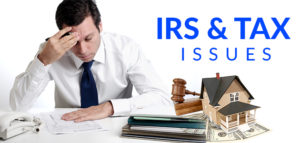Taxes are a huge hassle for self-employed individuals, but many IRS tax issues can be avoided through advance preparation. Keep the following considerations in mind year-round as you prepare for the most pain-free tax season possible:
- Choosing the Right Form.
Self-employed professionals often struggle to determine whether Schedule C or Schedule C-EZ is appropriate. Schedule C-EZ is best for sole proprietors with minimal business expenses who do not claim deductions for their home offices. More elaborate operations with extensive deduction filing require Schedule C. However, at times, an S-Corp structure is the better way to go.
- Registering to Pay Sales Taxes
Sales tax can be a huge headache for self-employed professionals, who must pay taxes on most products and many services. This means registering with the state’s tax department and tracking sales, even if the company’s presence is limited to offices and warehouses.
- Sales Tax Versus Use Tax
As complicated as sales taxes can be for companies with a physical presence in their state of operation, things get even more confusing when e-commerce is thrown into the mix. Businesses that lack a physical presence in a particular state but sell products or services there may be subject to use taxes.
- Estimated Quarterly Tax Payments
Self-employed individuals with tax burdens exceeding $500 should pay quarterly taxes every year. For most, the struggle is not whether to pay estimated quarterly tax payments, but how much to pay. In most cases, the prior year’s tax payments can be used as a guideline. By the end of the year, 100 percent of the last year’s taxes should be paid. If there is a big difference in income from one year to the next, quarterly taxes must be paid based on a basic estimate of the current year’s income, to avoid any additional IRS tax issues.
- Deducting Qualified Charitable Contributions
Unfortunately, not all charitable contributions are deductible. In order to take advantage of charitable deductions, sole proprietors and small business owners must ensure that they are included on the IRS Publication 78 list of qualified organizations. Often, self-employed individuals discover that a given contribution is not eligible for deduction long after they’ve parted with their hard-earned money. Remember, to avoid a potential audit, and an bigger IRS tax issue, make sure your contributions are deductible.
- Audits
If you think filing your tax return is stressful, wait until you get audited — it’s a nightmare. Unfortunately, even the best prepared self-employed professional can be subject to audits. There are many types of audits, but the most dreaded is the field audit, which requires documentation of all items included on a given return, as well as a long meeting with an IRS agent. Most IRS tax issues are created by and audit. However, there is a way out. We resolve most of our audits with a zero change to the taxpayers return.
Call Our Office
Whether you’ve been audited or are desperate to avoid audits and further IRS tax issues, you can benefit from targeted counsel. Contact us today at 720-398-6088 for help with your self-employment tax issues.

